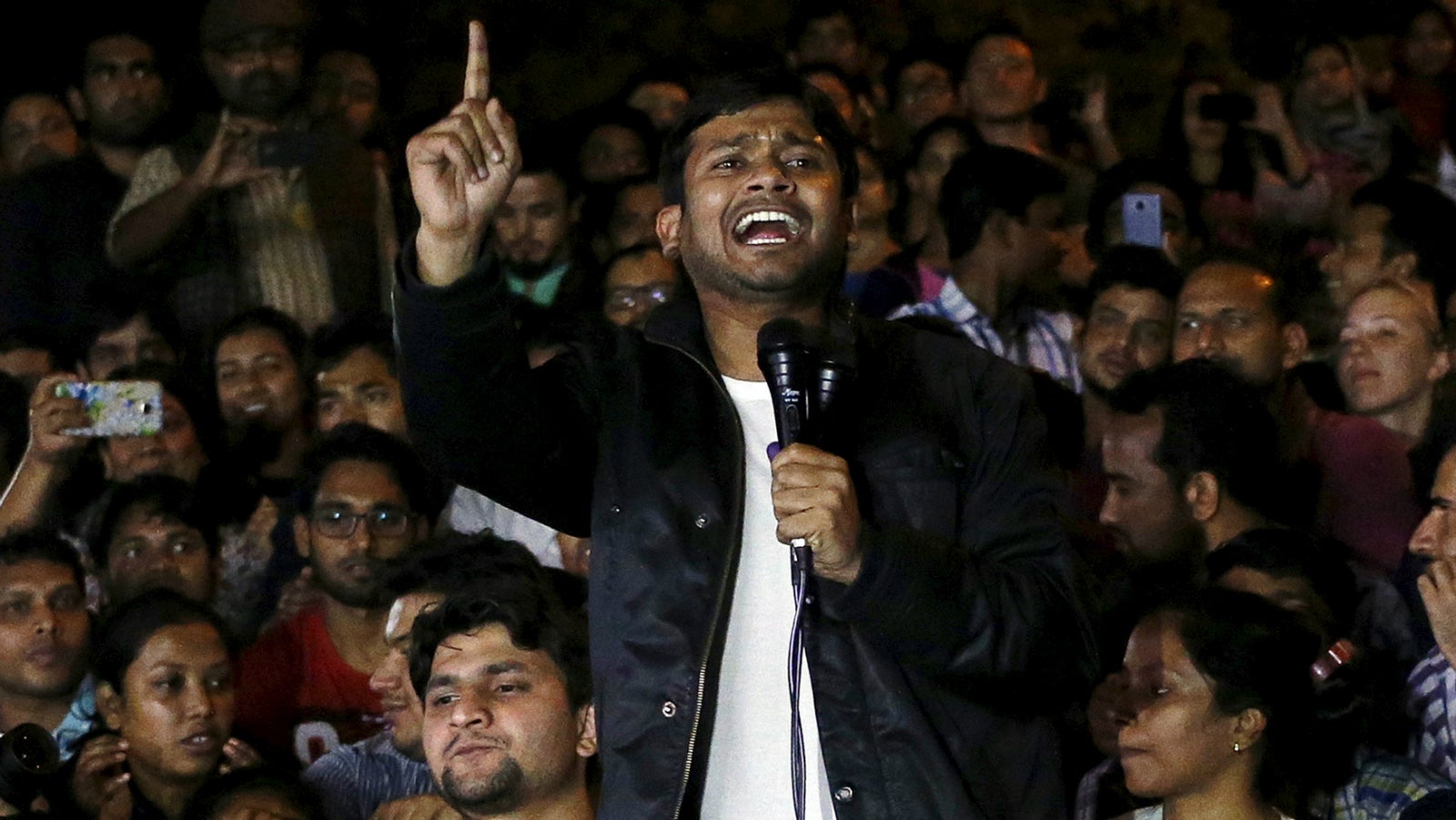Kanhaiya Kumar returns to JNU, all guns blazing
On the streets, he was debated and denigrated. In some television studios, he was ridiculed and reviled. On his way to court, he was brutally assaulted. In court, he was warned. But when he returned to New Delhi’s Jawaharlal Nehru University (JNU), none of that mattered.


On the streets, he was debated and denigrated. In some television studios, he was ridiculed and reviled. On his way to court, he was brutally assaulted. In court, he was warned. But when he returned to New Delhi’s Jawaharlal Nehru University (JNU), none of that mattered.
Late on March 03, hundreds gathered to celebrate the return of their students union leader Kanhaiya Kumar after his arrest on charges of sedition on Feb. 12. Fresh out of 20 days in jail, the 28-year-old PhD student did not disappoint. There was rhetorical flourish, biting humour, and sheer lung power.
But most of all, his hour-long speech was propelled by a single overwhelming emotion: defiance.
In a black jacket and holding two microphones, Kumar took on almost everyone—home minster Rajnath Singh, the Akhil Bharatiya Vidyarthi Parishad (ABVP), the Bharatiya Janata Party (BJP), the Rashtriya Swayamsevak Sangh (RSS), the Delhi police and sections of the media.
“Is it wrong to seek independence from the ills plaguing India?” Kumar asked, with a massive tricolour hovering over his head. “We are not seeking independence from India, but independence in India.” Setting the record straight on live television, he said the independence he sought would be delivered through India’s constitution, judiciary and democratic system.
He didn’t even spare prime minister Narendra Modi.
“Today, respected Modiji… Let me say it (respected)… Otherwise, they will doctor this (video) and put another sedition charge,” Kumar said, evoking peels of laughter and applause. ”So, today, Modiji spoke in parliament about Stalin and Krushchev… I felt like entering the TV, tugging at his coat and saying, ‘Modiji, please do speak about Hitler, too. If not Hitler, at least Mussolini, whose black cap you all wear.'”
Since Kumar’s arrest, JNU and several other universities in India have been on the boil, with students across the country coming out against the Modi government for suppressing freedom of speech. He, however, brooked no ill for the ABVP, the rival students’ body. ”There is no animosity towards ABVP because we are democratic. We see them as our opposition,” he said. “They planned everything. We are spontaneous,” he joked, as the crowd jeered.
The “attack” on JNU was pre-meditated and planned in advance, Kumar said, explaining that even the posters used by various set of people protesting against the university and him—ABVP, some former defence personnel and the Hindu Kranti Sena—were identical. “So, the programme was being prepared in Nagpur,” he said, in an obvious dig at the Nagpur-headquartered RSS, the ideological mothership of India’s Hindu right.
He even accused some sections of the media—which had taken a very adversarial position against JNU, its students and those who came out in support of them—of getting their pay-cheques from the powers that be.
“It’s a long fight. JNU will stand united and fight against anyone who tries to suppress us. We will not stop, we will not slow down,” Kumar ended his speech. But he had left the best for the last.
To drive his point home, he shouted the exact same slogans that had put him in the dock in the first place. The hundreds of students around him joined him. The defiance was unmissable.